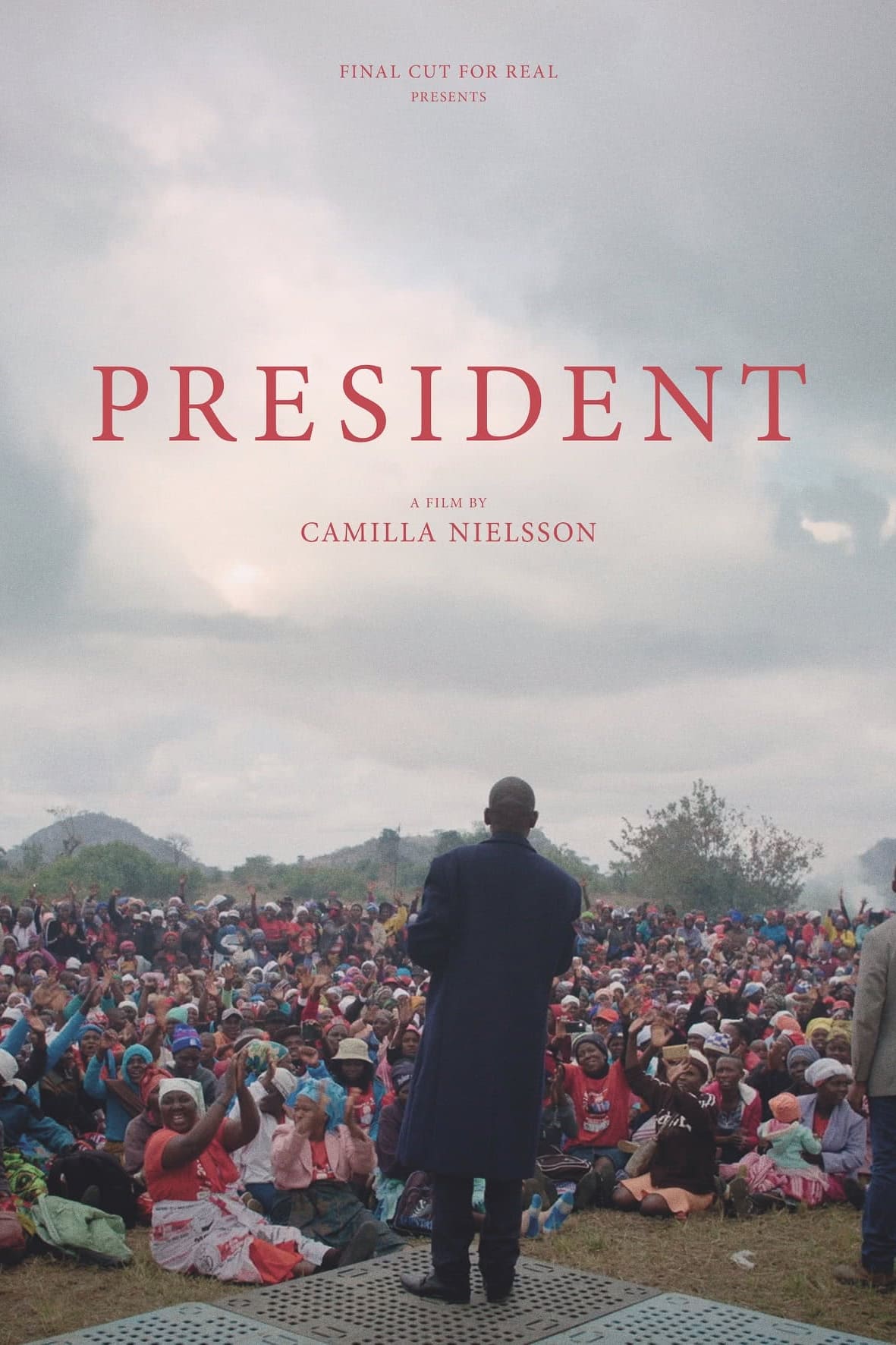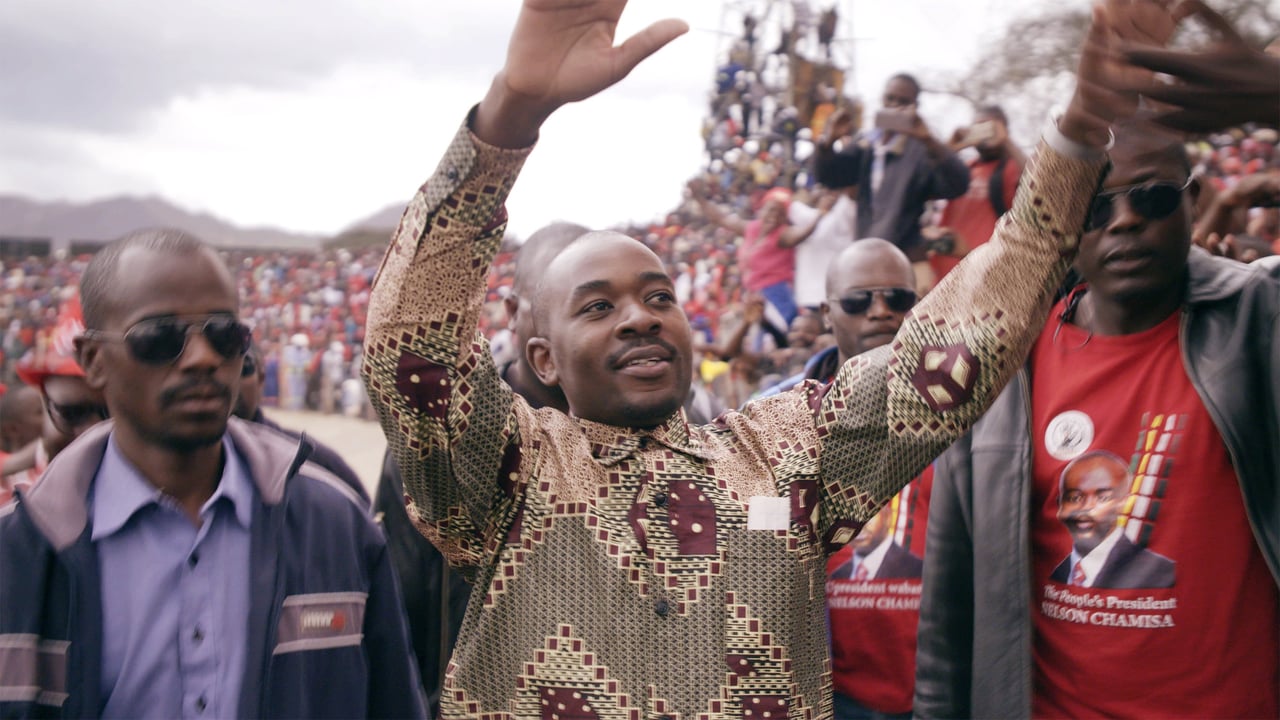
Democracy now
Camilla Nielsson's 2014 Democrats is one of the best documentaries of its kind, an unblinking look at the unsexy, downright ugly deal-making that goes into the compromises that fuel democratic governments, as experienced by politicians in Zimbabwe during that country's writing of a new constitution that would help it transition to something that could actually earn the description "democracy", with dictator/president Robert Mugabe having finally been obliged to loosen his grip on the government following the controversial 2008 elections. That film was marked out by some of the most dumbfoundingly good access some of the most powerful men in the country, and a smart strategy for assembling the amazing footage that resulted into a story of those men changing under the same pressures transforming Zimbabwe itself. Seven years later, she's come out with what amounts to a sequel, in the form of President, which returns to find the newborn democratic institutions imperiled at the first real test of their durability since their formation.
The context: in 2017, Mugabe was removed from power by a coup within his own party by Emmerson Mnangagwa, his vice-president. In 2018, the nation held a presidential election, the first in the independent nation's history where Mugabe was not on the ballot, with Mnangagwa running under the banner of the ZANU-PF party, and the largest of the opposition parties, MDC-T, putting forward Morgan Tsvangirai. This charged situation was made even more fraught when Tsvangirai died, at the age of 65, on 14 February. This threw leadership of the MDC-T to 40-year-old Nelson Chamisa, and this is where Nielsson's cameras arrive (the above is all summed up, with no-nonsense artlessness, in titled cards). She and her crew were invited to sit in on the MDC-T campaign, watching Chamisa and his aides assemble a strategy to attempt to work against the extraordinary institutional advantages enjoyed by ZANU-PF, and cope with the onslaught of dirty tricks leveled against them and all the other opposition parties.
Almost inevitably, President is not the same thing as Democrats, never to its advantage. Rewriting a constitution is a remarkable, singular event, while presidential elections are fairly common, all things considered, so part of the difference is that the new footage simply isn't as astonishing. Not least because this film spends all of its time on just one side; everything we see of Mnangagwa and the ZANU-PF is in the form of television reports, press conferences, and other publicly available sources. Perhaps as a result of this, and perhaps simply out of moral conviction, Nielsson is openly playing favorites this time; the film is rooting for Chamisa to win. I'm certainly not going to say that this is the wrong position to hold, in part because I simply don't know enough about Zimbabwean politics, but it does mean that President isn't quite as magisterial objective as its predecessor. We are getting a pretty optimistic and clean vision of the MDC-T campaign, almost suspiciously so; in a high-stakes election like the one that takes up the film's first half, it's hard to imagine the main opposition party never playing one dirty trick of its own, or proactively doing politics at all. Most of what we see finds the MDC-T in a purely reactive mode, coming up with strategies on the fly to deal with whatever the ZANU-PF is throwing at them.
There's certainly plenty that's appealing about this in and of itself, though it never feels as sharp and new and observant as the very best of the best political documentaries. Fortunately, or not, life intervened to make President far more exciting: after the election was held, not without tension that violence might erupt, the electoral commission seemed to deliberately slow down counting the vote and announcing the results, insisting with some defensiveness that they had five days, and by God they were going to take all five of them. And the longer this stretched on, the more apparent it was that the commission was rigging the election in Mnangagwa's favor. From this point until the end, President become far more enthralling than just another documentary from within the offices of a political campaign; it turns into a thriller about trying to safeguard democracy itself, as the country began to heat up with popular outrage and the MDC-T began mounting one fruitless challenge after another, as the rest of the world doubtfully tried to make sense of what was going on.
It is self-evidently the case that the election fraud half of President is just much, much more interesting and even important than the campaign half, and this gets to the biggest single issue with the film, bigger even than Nielsson's apparent lack of godlike objectivity. At 130 minutes - exactly 30 minutes longer than Democrats - President would not likely suffer at all from being trimmed down a bit, and it's obvious that the trimming could happen from the weeks of campaigning. Ultimately, this material has very little to do with any arguments the film is making; it's basically just the necessary context to make sure we understand what is going on, and that we have some sense of the key faces and names. An hour is surely not required to make all of that happen. And trimming down that hour would mean losing the film's weakest elements: the overt bias in Chasima's favor, the overreliance on news footage to patch holes that the filmmakers couldn't fill with their own footage.
Still, I am clearly just grousing. President may not be the formidable achievement its predecessor was, but it's still a pretty terrific documentary about the enormously hard work of navigating politics and trying to make sure that everybody follows all of the rules all of the time. The mixture of human drama and political maneuvering is faultless throughout the film, and even when it's most familiar, it's still an exciting procedural about smart, strategic people making and adapting plans with aplomb. It might not be a defining masterwork of the medium, but I'll still be surprised if 2021 bears witness to very many better works of cinematic nonfiction.
The context: in 2017, Mugabe was removed from power by a coup within his own party by Emmerson Mnangagwa, his vice-president. In 2018, the nation held a presidential election, the first in the independent nation's history where Mugabe was not on the ballot, with Mnangagwa running under the banner of the ZANU-PF party, and the largest of the opposition parties, MDC-T, putting forward Morgan Tsvangirai. This charged situation was made even more fraught when Tsvangirai died, at the age of 65, on 14 February. This threw leadership of the MDC-T to 40-year-old Nelson Chamisa, and this is where Nielsson's cameras arrive (the above is all summed up, with no-nonsense artlessness, in titled cards). She and her crew were invited to sit in on the MDC-T campaign, watching Chamisa and his aides assemble a strategy to attempt to work against the extraordinary institutional advantages enjoyed by ZANU-PF, and cope with the onslaught of dirty tricks leveled against them and all the other opposition parties.
Almost inevitably, President is not the same thing as Democrats, never to its advantage. Rewriting a constitution is a remarkable, singular event, while presidential elections are fairly common, all things considered, so part of the difference is that the new footage simply isn't as astonishing. Not least because this film spends all of its time on just one side; everything we see of Mnangagwa and the ZANU-PF is in the form of television reports, press conferences, and other publicly available sources. Perhaps as a result of this, and perhaps simply out of moral conviction, Nielsson is openly playing favorites this time; the film is rooting for Chamisa to win. I'm certainly not going to say that this is the wrong position to hold, in part because I simply don't know enough about Zimbabwean politics, but it does mean that President isn't quite as magisterial objective as its predecessor. We are getting a pretty optimistic and clean vision of the MDC-T campaign, almost suspiciously so; in a high-stakes election like the one that takes up the film's first half, it's hard to imagine the main opposition party never playing one dirty trick of its own, or proactively doing politics at all. Most of what we see finds the MDC-T in a purely reactive mode, coming up with strategies on the fly to deal with whatever the ZANU-PF is throwing at them.
There's certainly plenty that's appealing about this in and of itself, though it never feels as sharp and new and observant as the very best of the best political documentaries. Fortunately, or not, life intervened to make President far more exciting: after the election was held, not without tension that violence might erupt, the electoral commission seemed to deliberately slow down counting the vote and announcing the results, insisting with some defensiveness that they had five days, and by God they were going to take all five of them. And the longer this stretched on, the more apparent it was that the commission was rigging the election in Mnangagwa's favor. From this point until the end, President become far more enthralling than just another documentary from within the offices of a political campaign; it turns into a thriller about trying to safeguard democracy itself, as the country began to heat up with popular outrage and the MDC-T began mounting one fruitless challenge after another, as the rest of the world doubtfully tried to make sense of what was going on.
It is self-evidently the case that the election fraud half of President is just much, much more interesting and even important than the campaign half, and this gets to the biggest single issue with the film, bigger even than Nielsson's apparent lack of godlike objectivity. At 130 minutes - exactly 30 minutes longer than Democrats - President would not likely suffer at all from being trimmed down a bit, and it's obvious that the trimming could happen from the weeks of campaigning. Ultimately, this material has very little to do with any arguments the film is making; it's basically just the necessary context to make sure we understand what is going on, and that we have some sense of the key faces and names. An hour is surely not required to make all of that happen. And trimming down that hour would mean losing the film's weakest elements: the overt bias in Chasima's favor, the overreliance on news footage to patch holes that the filmmakers couldn't fill with their own footage.
Still, I am clearly just grousing. President may not be the formidable achievement its predecessor was, but it's still a pretty terrific documentary about the enormously hard work of navigating politics and trying to make sure that everybody follows all of the rules all of the time. The mixture of human drama and political maneuvering is faultless throughout the film, and even when it's most familiar, it's still an exciting procedural about smart, strategic people making and adapting plans with aplomb. It might not be a defining masterwork of the medium, but I'll still be surprised if 2021 bears witness to very many better works of cinematic nonfiction.
Categories: documentaries, political movies, worthy sequels






